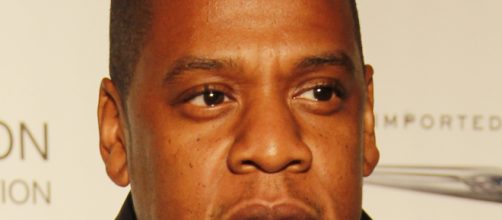Shawn "Jay-Z" Carter is the subject of the latest installment of David Letterman's hit Netflix series, "My Next Guest Needs No Introduction." In only four episodes, Letterman has brought an engaging array of guests ranging from former presidents to political activists. For the premiere of the fourth episode, Dave brought on Jay-Z, who, not surprising to fans, is an expert when it comes to words, and his conversation with David Letterman is no exception.
Verbose and varied
Letterman and Carter engage in many different topics throughout the hour-long episode.
Jay-Z opens with stories of his humble beginnings growing up in New York as the youngest of four with an absent father. He speaks to Letterman candidly about the difference in the relationship he has with his daughter, Blue Ivy, after detailing the anger and resentment he felt toward his father. He speaks fondly of the massive record collection his mother owned, citing the varied collection as his "reason for making music now." He credits his "love of words" to his sixth grade teacher, and tells a hilarious story about being inspired to be an English teacher because Mrs. Lowden had "ice when no one had it!"
'I had a paper route, too'
The highlight of the episode for me was Jay-Z's beautiful ability to discuss difficult subjects in a charismatic and funny manner.
In one of the best examples of Letterman and Jay-Z's banter, Dave jokes about attempting to find common ground with Carter by talking about childhood paper routes. Jay-Z cracks that, he, too, had a "paper route," and the viewer soon discovers he is referring to his time selling crack cocaine during the 80's era epidemic. He notes the importance of how he was still focused on his art during his extra curricular business; "every free second I had, I was creating."
'The goal is to make something that will last forever'
Not knowing very much about Jay-Z's career outside of his role as "Beyonce's husband," the most interesting element to the episode for me was his commentary on hip-hop and discussion on his roots, while on Def-Jam Records in the 1990's.
Citing Stevie Wonder as a major influence, he stresses the importance of creating music that will transcend time. Producer Rick Rubin, who has worked with Carter and is featured extensively in the episode, notes Jay-Z's work ethic; "I don't know how he knows what he knows, but he knows a lot."
'Smile'
In these incredibly culturally divisive times, Jay-Z notes, after Letterman dryly says he is "beginning to lose confidence in the Trump administration," that he believes the President's politics are "a good thing" because they are a gateway to "tough conversation." As an administration that is so newsworthy, it is refreshing for a highly publicized figure such as Jay-Z to stress the importance of talking about what it is that divides us.
Every topic of conversation within the hour-long episode is engaging and interesting, but the most poignant moment comes when Jay-Z talks about his mother, Gloria, who came out to her son eight months ago, to which he wrote the song "Smile" for his album "4:44." Jay says he "cried" for his mother because she was finally "free." Sharing his mother's story reinforces the optimistic feel I really enjoyed in this episode; using conversation to shed light during politically divisive times, vulnerable times, and important family moments. This makes the episode required viewing if you are in need of positivity or reassurance that our culture will still be okay in the end -- and Jay-Z is the perfect candidate for us all.


